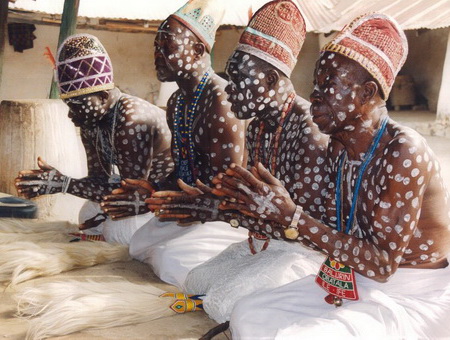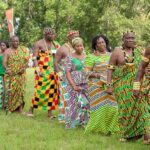Nestled in the South-Western part of Nigeria, the Egun people, also known as Ogu, embody a vibrant and distinct cultural heritage that has captivated historians and enthusiasts alike. This ethnic group, predominantly situated in Lagos and Ogun States, boasts a rich tapestry of traditions, language, and customs that have withstood the test of time. Let’s embark on a journey to explore the intriguing facets of the Egun people’s cultural identity.
Origins and Migration
Oral history traces the roots of the Egun people to the ancient Dahomey, present-day Republic of Benin, where they were descendants of those who migrated from regions like Whydah, Allada, and Weme due to the Dahomean War in the 18th century. Seeking security, the Egun people migrated to Badagry as early as the 15th century, solidifying their presence in Nigeria.
Language and Dialects
While belonging to the Yoruba tribe, the Egun people speak a distinct language, Gun, and possess various dialects such as Thevi, Xwela, Seto, and Toli. This linguistic diversity reflects the unique cultural mosaic within the Egun community.
Cultural Practices and Religion

The Egun people embrace ethnoreligion, a practice deeply intertwined with their ethnic identity and traditions. Their strong belief in cultural assimilation through religion underscores the significance of their customs and heritage. Notably, the worship of Zangbeto, a revered deity, exemplifies the spiritual richness of the Egun people.
Geographical Context and Occupations
Geographically enveloped by water, the Egun people thrive in activities such as fishing, coconut processing, and salt production. These occupations not only contribute significantly to their livelihood but also showcase their deep connection with the coastal landscape that shapes their way of life.
Traditional Leadership and Monarchical Institution
An intricate monarchical institution is deeply ingrained in Egun society, with traditional rulers, known as Akrans, playing pivotal roles in preserving the community’s historical legacy. This governance structure, dating back to the 15th century, stands as a testament to the enduring heritage of the Egun people.
Educational Legacy
The Egun people’s contribution to the western civilization’s advancement is noteworthy, as they were instrumental in introducing Christianity to Badagry in 1842. This momentous event led to the establishment of the first known school for western education in Nigeria in 1843, marking a significant milestone in the country’s educational history.
Culinary Delights
A distinct culinary tradition characterized by dishes like pap, Benin red sauce, peanut sauce, and vegetable soup adds a flavorful dimension to the Egun people’s cultural heritage. Their cuisine, which shares similarities with the Yorubas, reflects a fusion of unique flavors and culinary expertise.
Art and Tradition
Central to Egun culture are the enigmatic Egun masks, representing the spirits of deceased individuals who return to Earth to address community issues. These awe-inspiring masks, part of the Egungun tradition, symbolize the intersection of heritage and spirituality within Egun society, captivating admirers with their vibrant colors and enigmatic presence.
Conclusion
In essence, the Egun people’s rich cultural tapestry stands as a testament to the enduring legacy of a community deeply rooted in tradition, spirituality, and resilience. Their vibrant customs, language, and heritage serve as a compelling narrative of a people’s journey through history, embodying the spirit of unity amidst diversity.


